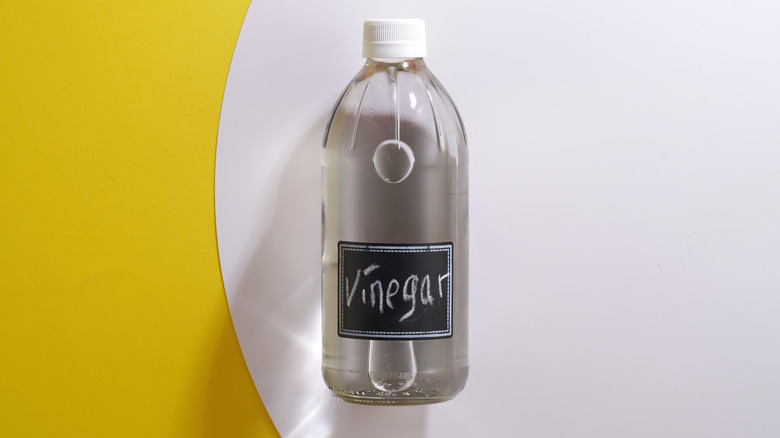Gardenias are beautiful flowering plants that can add fragrant and elegant blooms to your garden. Growing and taking care of gardenias outside your home adds a touch of beauty and sophistication with large white or yellow flowers and glossy, dark green leaves. Additionally, gardenias are known for their ability to attract pollinators like bees and moths, making them beneficial for the overall health of other plants in your garden. Like every other plant, though, gardenias can be susceptible to a host of issues, particularly failing to thrive in alkaline soil. Luckily, a touch of vinegar from your pantry may be the solution you’re seeking to help your gardenias thrive.
Gardenias require acidic soil to thrive because it allows them to absorb essential nutrients more efficiently. Acidic soil with a pH range of 5.0 to 6.5 creates an optimal environment for gardenias, promoting healthy growth and vibrant blooms. Your household vinegar can help acidify alkaline soil by slightly lowering its pH level. Vinegar contains acetic acid, which when diluted and applied to the soil, helps to neutralize alkalinity and create a more acidic environment. If you notice your gardenia’s leaves are yellowing prematurely, it may be a sign of nutrient deficiency due to alkaline soil. If this is the case, a soil test and a bottle of white vinegar could be all you need to save your gardenia plants.
How to use vinegar with your gardenias

Before you consider dumping a bottle of vinegar in your garden, it’s important to test the soil near your gardenias to determine if the alkalinity of the soil is impacting the health of your plants. To test the soil pH, you can purchase a soil testing kit from a garden center or use a pH meter. Follow the instructions provided with the kit or meter to obtain an accurate reading of the soil pH. If the pH is higher than the desired range, you can use vinegar to lower it. Remember that gardenias prefer slightly acidic soil with a pH range of 5.0 to 6.5.
To mix the vinegar solution, you’ll need one cup of vinegar and a gallon of water. It’s important to dilute the vinegar to prevent any potential harm to the gardenias. Mix the vinegar and water together in a large container until they are thoroughly combined. Once the vinegar solution is mixed, it can be applied to the soil around the gardenias. Use a watering can or sprayer to evenly distribute the solution. Be careful not to pour the solution directly onto the leaves or flowers of the gardenias, as this may cause sun damage or fungal infections. Instead, focus on applying the solution to the soil around the base of the plants. Regularly testing the soil pH and adjusting it with vinegar if necessary will help create a more suitable environment for the gardenias to thrive.
Why vinegar can help your gardenias
Vinegar is a versatile household ingredient that can provide numerous benefits to gardenias, helping them thrive in your garden. While vinegar helps to maintain the optimal pH level in the soil for gardenias, it can also help your flowers remain healthy by preventing fungal infections. Vinegar works to prevent fungus on gardenia plants because it contains acetic acid, which helps to control fungal diseases like powdery mildew. When sprayed onto affected areas, the vinegar solution can inhibit the growth of fungi and prevent further damage to the gardenias.
Secondly, vinegar acts as a natural weed killer. Weeds can compete with gardenias for nutrients and water, hindering their growth. By spraying a mixture of vinegar and water directly onto the weeds, it can effectively kill them without harming the gardenias. This helps to reduce competition and allows the gardenias to thrive without any hindrance.
Furthermore, vinegar can deter pests that may harm gardenias. Aphids, mealybugs, slugs, and other common garden pests can damage the leaves and flowers of these plants. By spraying a diluted vinegar solution onto the affected areas, it can repel these pests and prevent further damage.
Lastly, vinegar can enhance the overall health of gardenias by improving nutrient absorption. It contains acetic acid, which helps to break down minerals in the soil, making them more accessible to the plants. This allows gardenias to absorb essential nutrients more efficiently, leading to healthier growth and vibrant blooms.